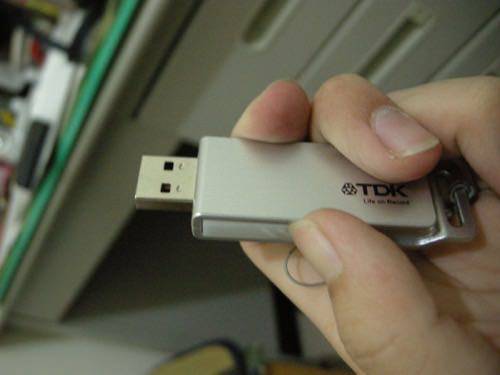
One small developer says that he’s readied an open-source alternative to Microsoft’s exFAT file system, providing companies and individuals with a free alternative to Microsoft’s file system for flash drives.
Over the weekend, developer Andrew Nayenko announced fuse-exFAT 1.0.0, completing three years of development on the project. Tarball archives have been posted to Google’s code site, where they can be compiled for GNU/UNIX based operating systems and Apple’s OS X.
And that could mean a loss of revenue for Microsoft, which has been busy licensing its exFAT file system to a number of companies. Last week, for example, Microsoft licensed the exFAT tech to automaker BMW for an undisclosed amount. It has signed similar deals with Aspen Avionics, Canon, Panasonic, Research In Motion, Sanyo and Sony.
Why Is This Important?
A file system manages the locations of computer files stored on a drive; in Windows, for example, PCs have used the NTFS file system since the days of Windows 2000. (Microsoft planned to include a new file system into Windows 8, called ReFS, but that system has been reserved for Windows Server.) Apple uses its own Hierarchical File System, with an improved version, HFS+, in OS X.
The vast majority of consumers and businesses never have to worry about which format is used on which drive, as products like USB keys and external hard drives can be read by both Apple and Windows systems. Those external devices – including the SD cards used by most consumer cameras – are typically formatted with a file system called FAT32.
But as cards themselves increase in file size, the file system’s role becomes more prominent; for example, SD HD cards up to 32GB are formatted with FAT32. But for the newer SD XC cards, from 32GB on up to a (largely theoretical) limit of 2 terabytes, the SD Card Association has flipped over to the exFAT file system.
That’s important in an increasingly connected world. In a statement, BMW’s project manager for CE device connections, Gottfried Schmid, explained that “with the support of the trend-setting file system exFAT, BMW is able to significantly increase the number of compatible CE devices and Mass Storage devices for our customers.” But the license agreements Microsoft has signed cover a number of traditional camera and phone manufacturers that are seeking legal shelter.
The Legal Mess
It’s still too early to tell whether Nayenko has managed to reverse engineer exFAT using open-source technologies, however. Microsoft hasn’t divulged many details of the the exFAT file system; in 2009, the SANS Institute attempted to reverse-engineer the exFAT file system to enable forensic examination, such as sensitive images that may have been stored on a camera. Microsoft maintains a licensing page specifically devoted to licensing exFAT technologies, and company representatives declined to comment when asked if Nayenko’s technology violated the company’s patents.
Nayenko is presenting the exFAT file system as a FUSE model, a loadable kernel module that essentially serves as a bridge to the actual kernel interfaces. FUSE is licensed according to the GNU public software license.
The few people who are aware of Nayenko’s release have begun asking whether or not businesses or other commercial entities interested in using fuse-exFAT within their own products may legally do so. Last year, Nayenko said that he didn’t believe that Microsoft could touch him. “Fortunately U.S. laws are not worlds [sic] laws,” he wrote in a message to the Google newsgroup.
On Tuesday, he took a more laissez-faire approach. “I don’t know,” Nayenko responded, when I asked to interview him about the legal standing of fuse-exFAT. “You should consult a lawyer. I run this project just for fun and don’t care about patents because I’m not a U.S. resident.”
It’s easy to draw comparisons between fuse-exFAT and Linux, and the battles between the open-source community and Microsoft in the late 1990s. Linux, however, was designed as a new OS kernel, not as a clone of existing Microsoft technology. While Nayenko may have designed a version of the exFAT file system that truly exists independently of Microsoft, any company selling products based on fuse-exFAT within the United States will probably face a legal challenge from Redmond.
Image source: Flickr/Le ciel azure

















